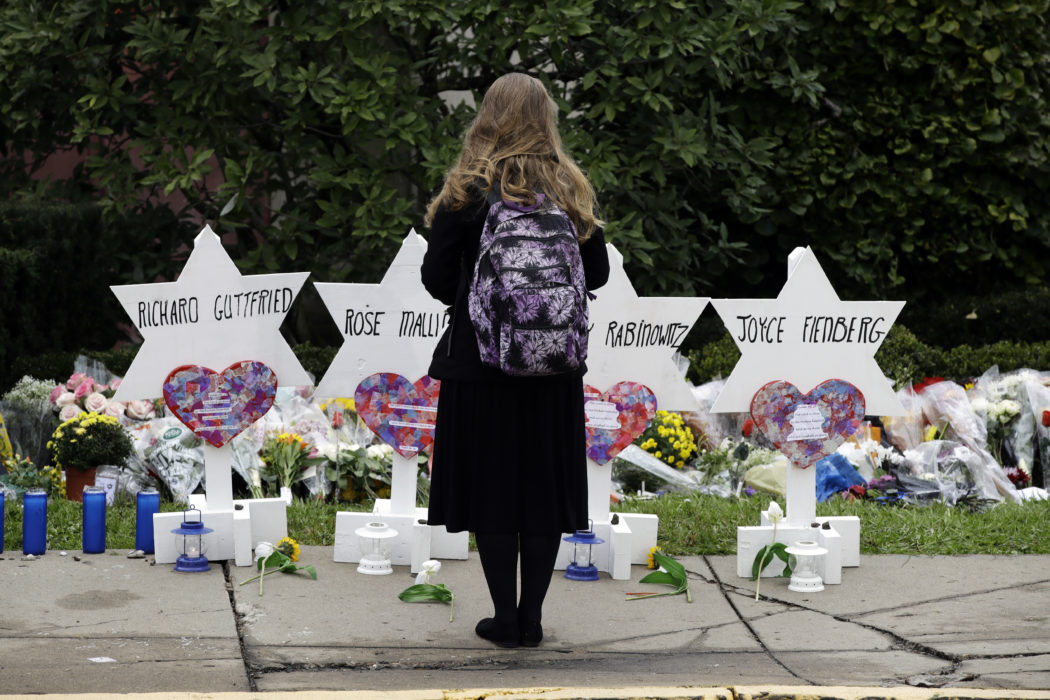COLUMN: Why is the flag flying so low?
Editor’s Note: To submit a response to this column, or submit a letter to the editor on a new topic, email your submission to opinion@usustatesman.com
Why is the flag flying so low?
I remember when I asked my parents this question. I don’t remember the specifics, but I was young, and I hadn’t seen the flag flying at half-mast before. My parents explained to me that the lowered flag meant our country was either honoring an important day or mourning a loss and that the flag didn’t fly at half-mast often.
How times have changed.
Last Saturday, the United States was rocked once again by a devastating act of violence carried out with a gun. Sure, there was a man behind the weapon, and — filled with hate — he used the gun to kill. But without it, would there be 11 dead?
A gun is a tool, and a tool is impartial: it augments the abilities of its user and allows him or her to become more efficient at a task. The man used his tool to kill people — as many as he could.
For an 18-year-old like me, it’s hard to remember a time when mass shootings in America weren’t a part of life. I was yet to be born when the Columbine massacre occurred in 1999, and since then there have been more acts of incredible violence: Sandy Hook, Stoneman Douglas, Las Vegas, San Bernardino, and now in Pittsburgh where 11 innocent people were put to death for the crime of exercising their first amendment rights, for worshipping quietly in a church.
The man who murdered these 11 people literally flaunted his gun collection on social media just a month before the attack. And the kicker is he was licensed to have those weapons. An evil, hateful man, who proclaimed his anti-Semitic views online for all to see, was legal to own and carry weapons of mass destruction.
Gun control is a polarizing issue, and one with many facets. The right to bear arms is stated in the Bill of Rights and considered so important by the Founding Fathers that it was listed as one of humanity’s basic, inalienable rights. But do you think that our forefathers intended to protect a right that sometimes comes at the expense of innocent lives? Undoubtedly no, and the right to bear arms which they upheld hundreds of years ago must be balanced with today’s reality.
A common argument against the implementation of stricter gun control laws is that even if guns were contraband, people would still find a way to own them. And that’s true; look at drugs such as cocaine and heroin which are both illegal to procure and own, yet people still find a way to do both. Does that mean we should legalize them for sale and purchase? How are guns any different than these illegal substances? Just because limiting their ownership wouldn’t solve all our problems regarding them, does that mean we shouldn’t try? We’ve already done that, and we don’t have to look far — Saturday was just a few days ago — to see the results.
After reading all of this, some might be surprised on hearing that I didn’t participate in the school walk-out last year. I didn’t and still don’t believe that taking away all guns from all people is the solution to our problems. We can’t ignore the precedent that such an action would set, but even more dangerous would be to ignore the rising number of people dying from our lack of action.
We don’t have answers to a lot of questions. What we do know, however, is that hateful people armed with guns equals a lot of innocent people dying. We can’t eliminate hate in the world, so why not put stricter limits on the other factor? Look at the UK, Japan, and Australia. All of those countries have more stringent gun control laws, and all have significantly fewer deaths per year due to gun violence.
These days the flag seems to vacillate between half and full-mast quite frequently. I fear a future, violence-is-normal world where one day my kids ask me, “Dad, why is the flag flying so high?”
Daedan Olander is a freshman from Washington state studying print journalism and accounting. His time is dominated by sports, reading, and studying in the library.

